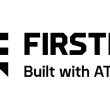FirstNet, NTIA officials provide insights to ‘opt-out’ process on eve of award announcement
LAS VEGAS—States and territories will have critical financial-obligation information regarding payments to FirstNet for the use of spectrum and core network assets as governors decide whether their states should pursue the ‘opt-out’ alternative to the nationwide FirstNet deployment, officials for FirstNet and the National Telecommunications and Information Administration (NTIA) said yesterday.
Under the law that created FirstNet, the governors for state and territories will decide whether to accept the FirstNet nationwide deployment within its jurisdiction or pursue the “opt-out” alternative, which calls for the state to build and maintain the radio access network (RAN) within its borders.
Although several states have conducted requests for proposals (RFPs) to select a vendor that would build the RAN in an opt-out scenario, these processes have been handicapped by the fact that states do not yet know how much they would have to pay FirstNet for use of the spectrum licensed to FirstNet and for any revenue sharing, if applicable.
Those financial figures will be included in the state plans that are scheduled to be delivered in the fall, according to Brian Hobson, FirstNet's director of state plans. Hobson did not preclude the possibility that there may be some room for negotiation, but said states should not expect “a lot of back and forth,” as occurred with many of the public-safety LTE early-builder initiatives that signed spectrum-lease agreements with FirstNet.
Another key information piece that many states have anticipated is the amount of grant funding that each state would receive to help pay for the construction of the RAN in an “opt-out” scenario. This figure also will be unveiled in the state plan, but officials for states and territories should not anticipate that these grants would approach fully funding the kind of network needed to be part of FirstNet, according to Marsha MacBride, deputy associate administrator for NTIA’s Office of Public-Safety Communication (OPSC),
“The statute only allows the grant amount to only be for the amount needed to construct the RAN—not operate, maintain and improve [the RAN],” MacBride said. “So, it will be reduced for that and potentially will be reduced for other costs associated with FirstNet having to manage the interoperability with an opt-out state. But that’s all to be decided; that’s just what we’re working through now.”
Carolyn Dunn, director of NTIA’s state alternative plan program (SAPP), echoed this sentiment, noting that the formula for determining potential state grants would be based on a total of $5.5 billion for all four phases—construction, operation, maintenance and operation. This figure will be divided by the 56 states and territories and only the construction portion would be considered for a grant.
In addition, Dunn stressed the need for states pursuing the “opt-out” alternative to demonstrate their ability to maintain “ongoing interoperability” with FirstNet throughout the 25-year contract period.
“The operative word here is ‘ongoing,’” Dunn said. “It’s not enough to show that, at one point in time, you can do it [interoperate seamlessly with the nationwide FirstNet system]. What we have to look at is whether you can do it over the long run.
“Do you have the ability to stay in lockstep with FirstNet on any upgrades to the network on any patches, any security upgrades, whatever? It has to be done in absolutely lockstep; you can’t be ahead of FirstNet, and you can’t be behind, because what will happen is that you will lose the ability for a public-safety person coming in from another state to have the same level of service. So, everything has to be in lockstep; you have to be ready to do that with all of the testing and all of the work that goes into those things.”

















